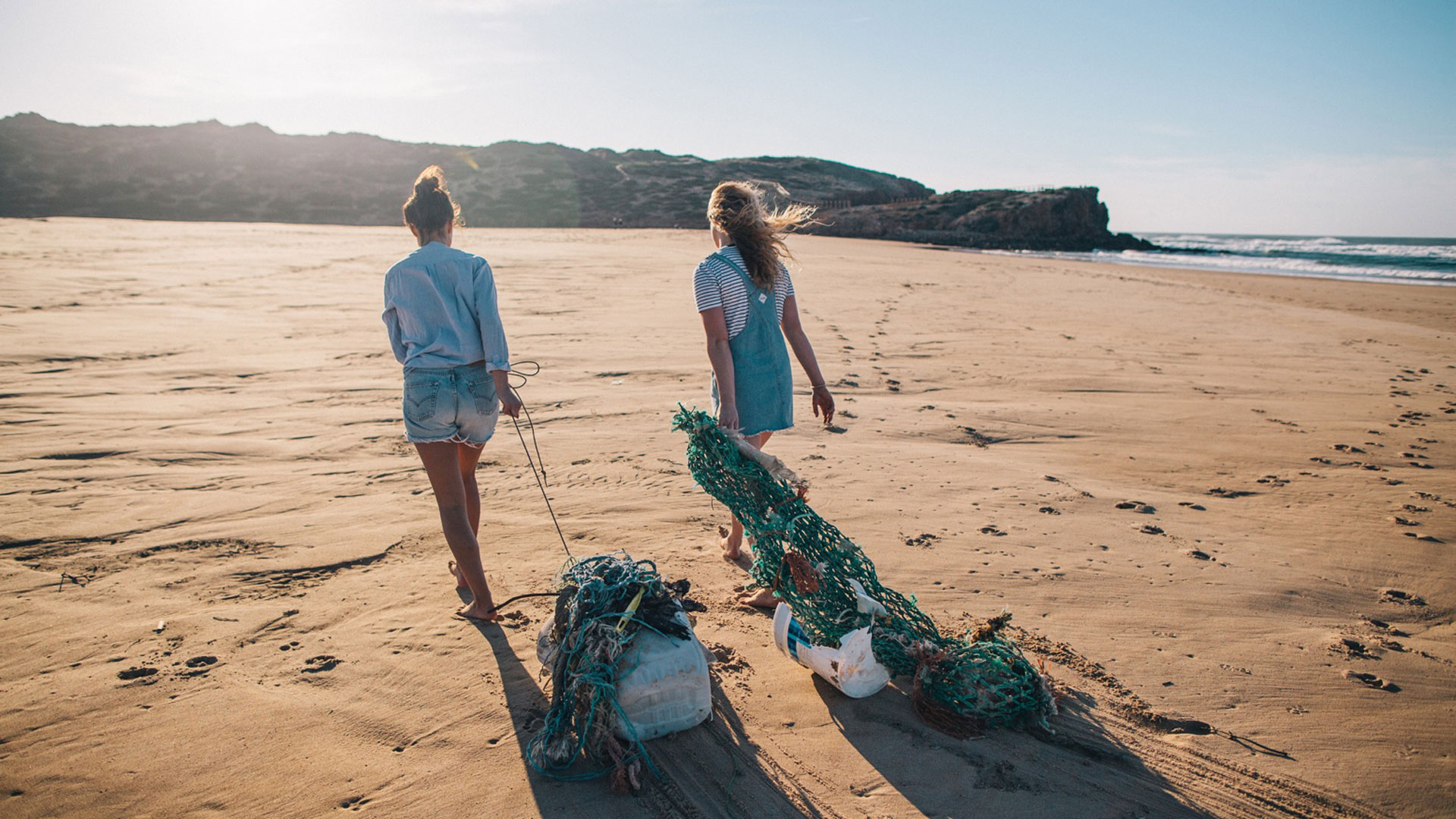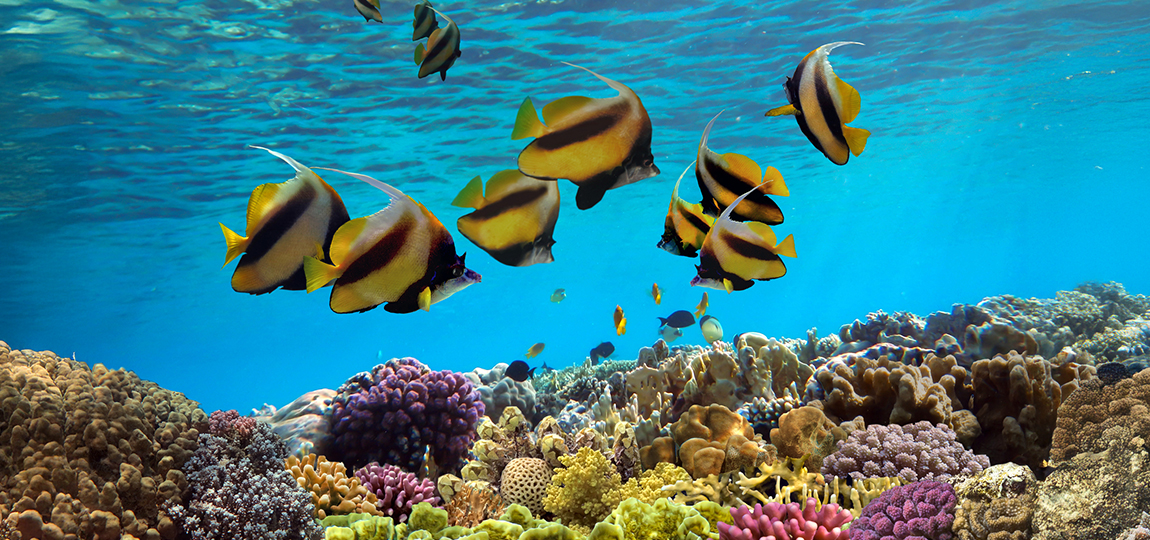Sea change: how the adoption of a blue economy will protect the planet’s oceans
Human activity has brought marine life to an ecological tipping point. Half the world’s habitats are facing extinction and 90% of sea life with a high value is significantly reduced. There’s a solution, but we must act quickly.
10/10/2024
For millennia, the world’s oceans have connected and nourished humanity. Not only do they provide essential resources, but they also act as the lungs of the planet, producing half its oxygen and absorbing about 30% of its CO2.
Some 40% of the global population depends on the oceans’ biodiversity. More than half of global GDP relies on the health of the world’s seas, while ocean-related industries generate $5.2 trillion in annual revenues.
But this reliance on such a precious resource, coupled with a huge increase in industrial activity, has brought us to a dangerous point. Up to 90% of sea creatures regarded as having a high value to humans have significantly dropped in number as their habitats disappear. Biodiversity is being placed at serious risk.
Oceans in peril
The seabed is endangered by drilling, trawling and anchor damage, and contaminants such as paint, discharges or spillages are entering the ecosystem, mainly from the agricultural, chemical and textile industries.
Further pollution is caused by the introduction of alien species from ballast water and biofouling, while agricultural fertilisers not absorbed by crops are contaminating the seas, causing eutrophication. Through this process, the waters become overloaded with organic and mineral nutrients, causing algae and cyanobacteria to grow rapidly and deplete the oxygen supply.
Fishing is another major cause for concern. The annual global haul of fish is 214 million tonnes and 20% of the protein needs of 3.3 billion people are met by the seas’ products. But fishing produces considerable amounts of plastic – over 600,000 tonnes are dumped every year – as well as biological waste, both of which contribute significantly to the imbalance of the oceans’ ecosystems.
Furthermore, escalating carbon dioxide and other greenhouse gas emissions are having a predictably negative effect. They lead to shifts in water temperature, acidification and deoxygenation, which trigger alterations in oceanic circulation and chemistry. Additionally, they are causing sea levels to rise, prompting extreme weather events, and provoking changes in the composition and abundance of marine species.

Problems and solutions
A recent report, Ocean – Nutrition, Sustainability, Technology, produced by the Intesa Sanpaolo Innovation Center in collaboration with the One Ocean Foundation and Fondazione LINKS, throws these issues into stark relief. It comprehensively addresses the key role the oceans play in our lives, examining the complexity of its ecosystems and the clear link between its health and the survival of the planet – and the human race.
It also offers solutions, looking closely at how technology as well as nature-based approaches can provide ways to alleviate and mitigate these pressures. And it seeks to find a balance that can guarantee the long-term, sustainable use of marine resources.
Natural processes under discussion include the establishment of marine protected areas, the management of sustainable fisheries, and the conservation and restoration of ecosystems such as coral reefs, mangroves, salt marshes, seagrass meadows and seaweed forests.
Other improvements can be made on land – via precision agriculture, biopesticides, bioherbicides and waste-water recycling, and through the use of indoor cultivation such as vertical farming.
Meanwhile, the fishing industry needs to realign itself to a more considerate model. The preservation and sustainability of the oceans’ ecosystems require an international framework for the industry’s control and management. And new, biodegradable materials should be used to replace plastic nets.
Aquaculture – fish farming and the aquatic cultivation of plants and algae – is one of the most efficient methods for the production of animal proteins.
Certain types of intensive aquaculture, especially in Asian countries, are contributing to the reduction of biodiversity and eutrophication of the seas by spreading waste, manure, fodder and antibiotics. But the practice is undergoing profound evolution – driven on one hand by technology and the need for greater sustainability, and on the other by the need to increase protein production prompted by the increase in global demand.

Technological advances
Modern technology is being used to drive the changes necessary to protect marine ecosystems. Fish farming activities are heading towards sustainability thanks to the development of innovations such as AI and the ability to acquire data flows from different sensors. This makes it possible to estimate the number, mass and health of the fish. In addition, advanced data analysis provides an understanding of marine creatures’ habits, swimming patterns and situations of stress.
Digitalisation and autonomous connected media are opening up new scenarios for making exploration of the oceans sustainable. Earth observation via satellite provides data that can be processed in real time. Submarine communication is another fundamental technology being used for predictive maintenance and the planning of operations.
Remotely operated vehicles and autonomous craft are valuable operational resources, designed to minimise human intervention in terms of cost containment and safety. They can also be used for the removal of waste from the water and the seabed.
There is much work to be done. Leaders, institutions and individuals must act together to promote a new blue economy that has a genuine impact.
Our oceans hold 98% of the planet’s water reserves. We must do everything we can to protect their life – and our own.

